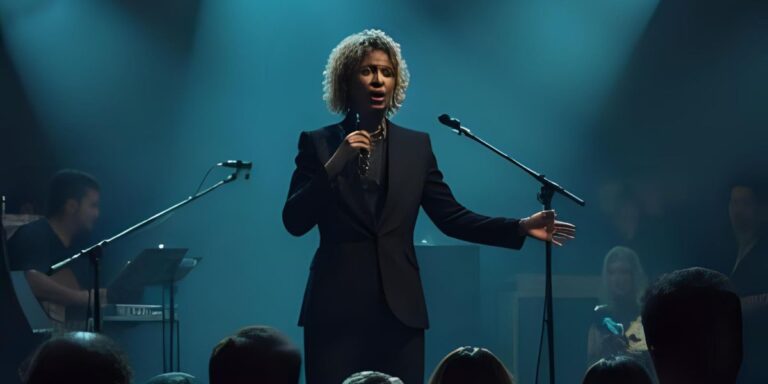Following her recent GRAMMY win, singer-songwriter Chappell Roan found herself at the center of controversy when music executive Jeff Rabhan publicly criticized her acceptance speech. Roan used her moment in the spotlight to speak out about important issues facing artists today, particularly advocating for better healthcare and fair compensation for musicians. While many applauded her bold stance, Rabhan, a well-known figure in the industry, took issue with her comments.
In her GRAMMY speech, Roan highlighted the struggles of many artists who do not have adequate healthcare or financial support despite their contributions to the music industry. She expressed a passionate plea for systemic changes to ensure artists are treated with the same respect and consideration as those in other industries. Roan’s speech struck a chord with many in the music community who have long felt that the financial rewards for artists are often disproportionate to their hard work and talent.
Rabhan, however, voiced his disagreement with Roan’s comments, implying that such issues should not be aired publicly and questioning the appropriateness of her message during such a prestigious event. His response drew significant attention, especially given his position within the music industry as a powerful figure working with many high-profile artists.
Rather than backing down, Roan fired back with a challenge to Rabhan. In an open statement, she invited him to match her $25,000 donation to support artists who are struggling to afford healthcare. By doing so, she emphasized her commitment to the cause and challenged Rabhan to put his money where his mouth is when it comes to supporting change within the industry. Roan’s challenge struck a chord with fans and fellow musicians alike, amplifying her message and underscoring her dedication to fostering a more equitable environment for artists.
Roan’s challenge highlights a broader conversation in the music industry about the need for reform. Many artists face barriers when it comes to securing healthcare, especially those who rely on unpredictable incomes from their creative work. Despite the rise of streaming services and other new revenue streams, the financial structure of the music industry remains heavily skewed in favor of executives, record labels, and other intermediaries, often leaving artists with limited resources to support themselves.
The conversation sparked by Roan’s speech and subsequent challenge to Rabhan also underscores the ongoing debate about the role of the entertainment industry in supporting its creators. While music executives like Rabhan have a significant influence on the direction of the industry, Roan’s public challenge is a clear call for more accountability and support for the artists who form the foundation of the music world.
Roan’s courage to speak up during the GRAMMYs has ignited a vital conversation that could lead to much-needed changes in the way artists are compensated and supported. The response to her remarks has certainly opened a dialogue, and many are hopeful that this moment could mark the beginning of lasting change in the music industry.


